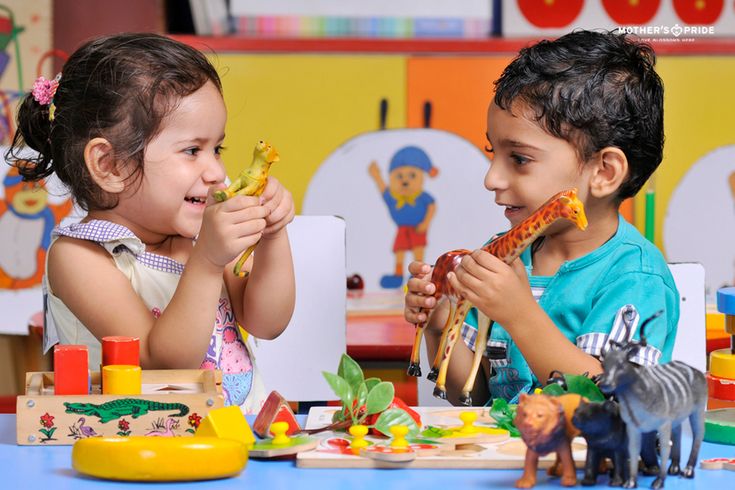Ever noticed how toddlers love to mimic adults, from pretending to drive to cooking in a play kitchen? This imitation isn't just for fun; it's an important step in their journey to becoming independent, starting as early as age 2. This natural inclination, when nurtured, sets the foundation for lifelong skills and confidence. As parents, our goal is to encourage this drive, raising kids who are not only confident and capable but also ready to handle life's challenges on their own. Cultivating independence in children isn't just about letting go; it's about striking a delicate balance between support and freedom. Studies show that kids who learn to be independent early are more resilient, better at solving problems, and have higher emotional intelligence as they grow up.
However, finding this balance can be challenging. It's a delicate dance of knowing when to step in and when to step back. It's about offering guidance while allowing them the space to learn and grow. Finding this equilibrium is essential for fostering their independence and resilience. Not sure where to start? Let's explore practical 'Do's' and 'Don'ts' to empower your child's independence journey.
DO's :
1. Foster Decision-Making Skills :
From an early age, empower your child to make choices. Let them decide on their outfit for the day: "Would you prefer the red shirt or the blue one?" This approach fosters a sense of control and respect, teaching them the importance of decision-making in a supportive environment. Instead of deciding everything for them, involve them in everyday decisions like picking snacks or selecting bedtime stories. This not only builds their confidence in making decisions independently but also encourages them to express their preferences and opinions from a young age.
2. Teach Problem-Solving Skills :
Imagine your child is trying to build a block tower with a friend, but they can't agree on how to start. Instead of jumping in to solve the problem, ask questions like, "How can you both work together to build the tower?" or "What ideas do you have to get started?" This encourages them to think creatively and collaborate. By allowing them to figure out the steps, whether it's deciding on the base or choosing the next block, you're helping them develop problem-solving abilities. This hands-on experience teaches them to negotiate and find solutions independently, preparing them for handling teamwork and challenges with peers effectively.
3. Assign Age-Appropriate Chores:
Giving children responsibilities at home, such as helping out with folding laundry. When they take on this responsibility, they learn about accountability and teamwork within the family. Chores like folding clothes teach them the value of contributing to household tasks. Instead of handling all the laundry yourself, involve your child in age-appropriate chores such as folding clothes, matching socks, or putting away their own clothes. This hands-on experience not only builds practical skills but also gives them a sense of pride in completing tasks independently. It's a way to show them how their efforts contribute to the smooth running of the household.
4. Encourage Exploration and Curiosity:
Let your child explore what they're interested in. Take them on nature walks and encourage them to ask questions about what they see. This helps them learn more about the world and become better at noticing things. Instead of stopping their questions, which can make them less interested in learning, do things that make them curious. For example, go to a museum, try easy science experiments at home, or read new books together. These activities help them enjoy learning and exploring new things.
5. Foster Financial Literacy:
Teaching your child about money management is essential for their independence. Encourage them to save a portion of their birthday money or earnings in a jar for something special they want to buy. This practical approach helps them learn the importance of budgeting, saving for goals, and making thoughtful spending choices. If you always buy them whatever they ask for without teaching them about money, they won’t understand the value of financial independence. These early lessons empower them to become responsible with money, fostering a foundation for lifelong financial confidence and independence.
6. Model Independence:
Children learn by observing. Involve them in activities like cooking meals to demonstrate independence. Show them how to follow recipes and use kitchen tools safely. Explain your decisions, like why you choose certain recipes or plan a grocery list. This helps them learn through observation and understand the reasoning behind your actions. If you don’t explain your actions, they miss out on learning independence through your example. With this, you teach them essential life skills for managing tasks confidently on their own.
7. Promote Self-Care Skills:
Teach your child self-care skills like brushing their teeth, bathing, and dressing themselves. Make it a routine and gradually reduce your assistance. Developing self-care skills helps children feel capable and responsible for their own well-being. Rather than doing everything for them, which can delay their ability to take care of themselves, encourage them to take on more responsibility gradually. For example, teach them to tie their shoes, or involve them in packing their school bag
8. Support Emotional Independence:
Teach your child to manage disappointment, like not getting a desired toy. Encourage them to express their feelings, fostering emotional independence crucial for their well-being. Instead of ignoring their emotions, provide support by listening and guiding them. Share your own experiences with setbacks to show them how to cope positively. This helps them develop resilience and manage challenging emotions independently.
DON’TS :
1. Avoid Over-Protection:
While it's natural to want to protect your child from failure, it's important to let them experience it and learn from it. When teaching them to ride a bike, give initial guidance and then let them try on their own. This fosters resilience and problem-solving skills, showing them that mistakes are part of learning. Creating a safe environment for them to explore new activities or solve puzzles without immediate intervention encourages independence and self-reliance.
2. Don’t Micromanage :
Resist the urge to control every aspect of your child's activities. When it comes to homework, offer help if they ask, but encourage them to work independently. Allowing children space to manage their tasks fosters autonomy and competence, teaching them to take responsibility for their work. Instead of micromanaging, which can hinder their independence, support them in managing their time and tasks. For instance, let them plan their study schedule or decide the order of their assignments.
3. Avoid Immediate Solutions :
When your child is working on a puzzle and gets stuck, don’t rush to provide an answer. Instead, ask guiding questions like, "What piece do you think fits here?" or "Have you tried looking at the shape and color?" Encouraging children to think through problems helps them develop critical thinking and persistence. Instead of providing immediate solutions, which can hinder their problem-solving skills, support their efforts to find solutions independently.
4. Don’t Underestimate Their Capabilities :
Children are often more capable than we think. Avoid assuming they can't handle certain tasks or responsibilities. When preparing for a trip, let them pack their own suitcase. Allowing children to take on tasks boosts their confidence and independence, demonstrating your trust in their abilities. Instead of underestimating them, offer guidance and support while letting them manage tasks. For instance, involve them in planning their birthday party or organizing their room.
5. Avoid Negative Reinforcement :
Criticizing or punishing a child for trying and failing can discourage independence. Instead, when your child's drawing isn’t perfect, focus on praising their effort and creativity. Positive reinforcement builds self- esteem and encourages perseverance, fostering a growth mindset. Rather than negativity, celebrate their effort and improvement. For example, praise their attempts in learning a new sport or completing a challenging project.
6. Don’t Neglect Emotional Independence :
Help your child learn to recognize and handle their emotions. When they feel disappointed, like not getting a toy they wanted, encourage them to talk about how they're feeling. Emotional independence is key for their well-being, teaching them to understand and manage their emotions, which is important for making good choices and building relationships. Instead of ignoring their feelings, which can make it harder for them to control how they feel, be there to listen and guide them.
Conclusion :
Raising independent children is a gradual process that requires patience, trust, and a willingness to let go. By incorporating these do’s and don’ts into your parenting approach, you can help your child develop the skills and confidence they need to navigate the world independently. Remember, the goal is not to eliminate your presence from their lives but to equip them with the tools to handle life's challenges on their own. Through your guidance, they will learn that independence is not just about doing things alone, but about having the confidence to seek solutions, ask for help when needed, and trust in their abilities.









